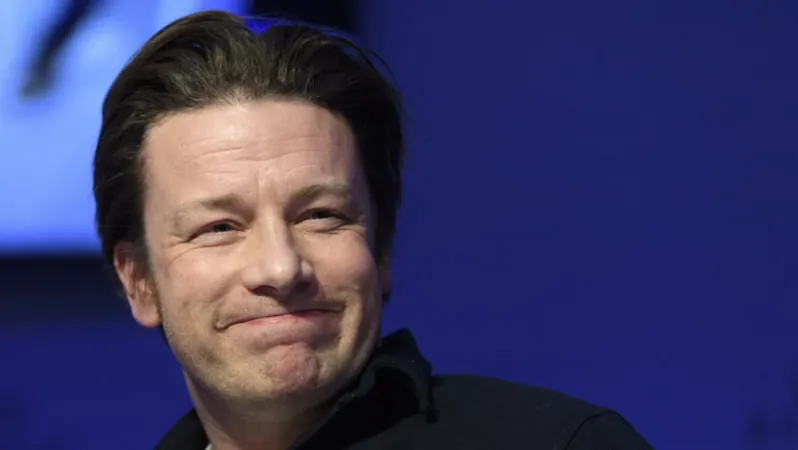
Jamie Oliver's Children's Book Pulled After Controversy with First Nation Australians—What Happened?
2024-11-12
Author: Mei
In a shocking turn of events, British celebrity chef Jamie Oliver’s children’s book, *Billy And The Epic Escape*, has been withdrawn from sale following backlash from First Nation Australians. Reports from The Guardian on November 9 revealed that the National Aboriginal and Torres Strait Islander Education Corporation (NATSIEC) condemned the book for perpetuating harmful stereotypes and trivializing the experiences of First Nations peoples.
The controversy centers around a subplot featuring a First Nations girl in foster care. Critics argue that the portrayal contributes to the "erasure and stereotyping" of First Nations cultures and experiences, fueling frustration among community advocates who felt marginalized by the narrative.
In an emotional statement, Oliver expressed his devastation over the offense caused and reiterated his commitment to understanding the complexities of such sensitive issues. "It was never my intention to misinterpret this deeply painful issue," he stated. He also confirmed that he and his publishers, Penguin Random House, had come to a mutual agreement to pull the book from circulation.
The backlash has raised concerns about the lack of consultation with First Nations communities prior to the book’s release. Community leaders were especially disappointed that Oliver and his team appeared to have bypassed essential discussions that could have informed a more respectful representation of Indigenous stories.
Acknowledging the oversight, Penguin Random House admitted their publishing standards had "fallen short" and vowed to learn from the incident. They stated, "With Jamie Oliver, we have agreed that we must take decisive action moving forward."
This incident has sparked wider discussions in the literary world, as Oliver is not the only celebrity entering the children's book market. Many established children's authors have voiced frustration over how celebrity endorsements and releases have overshadowed their work, creating a crowded marketplace that can dilute the quality and authenticity of children's literature.
Oliver initially launched his first children's book, *Billy And The Giant Adventure*, last year and touted his efforts to craft accessible text due to his experience with dyslexia. The TV chef, known for his commitment to improving children's nutrition, gained fame in 1999 with *The Naked Chef* and has been a prominent voice in advocating for better food options in schools.
As the literary world watches closely, this situation serves as a reminder of the importance of cultural sensitivity and the need for collaboration when representing diverse voices in literature. What will be Jamie Oliver's next move? Only time will tell, but one thing is clear—this incident has ignited a critical conversation about representation and accountability in children's storytelling.

 Brasil (PT)
Brasil (PT)
 Canada (EN)
Canada (EN)
 Chile (ES)
Chile (ES)
 España (ES)
España (ES)
 France (FR)
France (FR)
 Hong Kong (EN)
Hong Kong (EN)
 Italia (IT)
Italia (IT)
 日本 (JA)
日本 (JA)
 Magyarország (HU)
Magyarország (HU)
 Norge (NO)
Norge (NO)
 Polska (PL)
Polska (PL)
 Schweiz (DE)
Schweiz (DE)
 Singapore (EN)
Singapore (EN)
 Sverige (SV)
Sverige (SV)
 Suomi (FI)
Suomi (FI)
 Türkiye (TR)
Türkiye (TR)